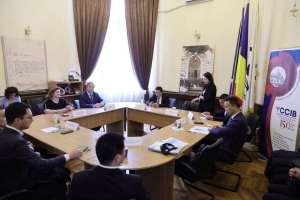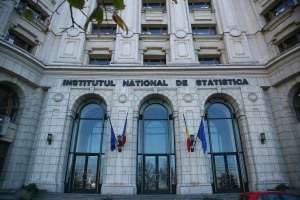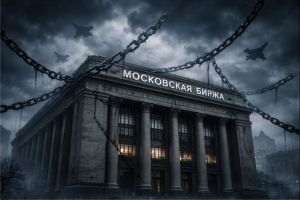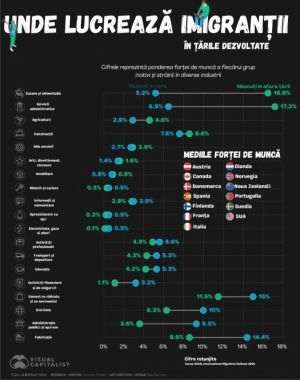The intelligence services were aware of the plan of the USL to take over the power, at least as early back as February/March, but a few clues suggest that Traian Băsescu had been informed about their preparations ever since September/October last year.
The National Anticorruption Department (DNA), where Daniel Morar is the chief prosecutor, received the authorization, this spring, from the High Court of Cassation and Justice, where Laura Codruţa Kovesi was the general prosecutor, to tap the phone conversations of his colleague, prosecutor George Bălan, of the Supreme Council of Magistrates (by the nature of her position, Laura Codruţa Kovesi is a member of the Supreme Council of Magistrates), because, as it is said, Bălan was after the position of Kovesi, together with pushing her advisor Marcel Sâmpetru as a replacement for Morar. In order to achieve that, he made himself useful to the leaders of the PSD, by providing them with secret information about political competitors from the PNL, which were traded through an Ilfov intelligence structure.
As it was so judiciously noted by PSD member Dan Şova, such an intention would have been nonsensical, as long as Traian Băsescu was still in Cotroceni, because the appointments in those positions are the prerogative of the president, and it would have been absurd to negotiate for such positions with someone else, like for instance with PM Victor Ponta.
But, the spokesperson is right, for it is obvious that neither George Bălan nor Marcel Sâmpetru are exactly stupid, and that means they were aware of the fact, that the plan of the USL to take over the power, had come, in February, as far as the allocation of the key positions of the country among various people, meaning that, in other words they were certain that Băsescu would go away.
The existence of the recordings of the conversations of Bălan at the DNA, proves that the intelligence services had documented, as early as March, the plan of the USL to replace not just the heads of the High Court of Cassation and Justice and the National Anticorruption Department, but also the planning of the political, administrative and legislative operations which occurred between July 3rd and July 6th, resulting in the suspension of the president and the interim presidency of Crin Antonescu.
Băsescu keeps suggesting that it is Dan Voiculescu who is the author of the plan, an information which he claims comes from an archive which the public does not have access to.
I think there were several versions of the plans to take over power, including the current one (which possibly bears the trademark of Dan Voiculescu), but one which Băsescu did not take into account, because he didn't think that the USL would assume the risks that came with it - the European condemnation of Romania, for the antidemocratic procedures for assaulting the institutions, with harmful concrete results, of a financial and economic nature -, or, simply because he couldn't come up with an effective defense against this kind of attack.
It is possible that in the end, the Voiculescu alternative was adopted by the USL, under the threat of a major danger, such as the signal given by the plagiarism accusation which appeared in the "Nature" magazine (June 18th), which indicated that the president was serious about getting rid of Ponta, and eliminated the option of any other plan to get rid of the president (which also means that Ponta was not only important as a prime minister, but also as a man which the team which drew up the plan thought could be trusted).
AUTHOR'S NOTE
I, for one, suspect that Ion Iliescu had his hand either in planning, or it at least the source of the plan: the symbolic function which was played by the substitution of Traian Băsescu, with Victor Ponta, at the Brussels meeting, is part of the subtlety of Iliescu, which is something that Voiculescu is incapable of.
The recent appearance of Ion Iliescu, snoozing to the left of Ponta, at the helm of the meeting of the PSD, symbolizes the same thing, reaffirming his power, this time over the members of his own party.
Perhaps such a threat is reflected in the statement made by the prime minister for news agency Bloomberg, four days after the beginning of the plagiarism scandal (June 22nd): "There is a strong political conflict between me and the president,[...] There is also a personal one, because all the weapons are on the table for the battle [...] I want to express my sadness at the fact that when we meet in a government session, we spend 75% of our time talking about how to defend ourselves from political attacks".
But some of the moves of the political institutions from the time of the PDL government, which retroactively seem to prepare the attacks against Victor Ponta on the subject of plagiarism, strongly suggest that the planning of the steps for overturning Băsescu had begun in September-October last year, at the latest, and that in turn, the president was getting ready for war himself.
For instance, the preoccupation for plagiarism of Education Minister Daniel Funeriu (the one who Victor Ponta indicated as the hidden author of the reveals published by "Nature" magazine) goes back to last autumn, when, on August 31st, the Boc government changed, through an Emergency Ordinance, the Law on behavior on Scientific Research, which dated back to 2004.
Funeriu proved to be really concerned with that problem, therefore, in October 2011, he issued the guidelines of the National Ethics Council (CNE) and its membership (through an Order published on November 4th), and them, in February this year, he kept at it with the Order for the Organization and Operation of the National Council for the Certification of Titles, Degrees and University Certificates (CNATDCU). On March 12th, he added to that a comprehensive Regulation, which has its most significant parts in Article 27:
- "(1) Any individual, including the members of the CNATDCU, can notify in writing, through the UEFISCDI, the General Council of the CNATDCU concerning the violation of the standards of quality or professional ethics standards, including concerning the existence of plagiarism, in a PhD dissertation, regardless of the time when it was presented.";
- (4) In the event of a notification or of a self-notification, the General Council of the CNATDCU decides that the professional quality or ethics standards have not been honored, the president of the CNATDCU proposes to the Minister of Education, Research, Youth and Sports, one or more of the following measures:
a) the taking away the function of PhD coordinator;
b) the taking away of the PhD title;
c) the taking away of the accreditation of the doctoral school."
Hence, on July 28th, the interim minister of Education was lying when he said that there was only one legal entity - namely, the National Ethics Council (CNE) - which could render a ruling on the issue of plagiarism, because the CNATDCU had the legal ability to issue a verdict as well, which is precisely what it did on the next day, stating that Victor Ponta had indubitably plagiarized.
Funeriu's actions are legal, but looking at them retroactively, we realize that they were useful in the political war, as sharp axes, intended first to cut off the heads of those which the USL had appointed for the Ministry of Education, then of Victor Ponta himself.
But the USL raised its head off the log.
The measures passed by the USL, to avoid having Victor Ponta be officially declared a plagiarist, were not aimed at proving that what he did was not plagiarism, only at preventing the official announcement of said plagiarism.
The reactions of the USL in the case of plagiarism reveal the methods conceived by the team for projecting the wide operation of taking control:
• The modus operandi
A. Image management operations:
1. The obvious statements of innocence, while at the same time accusing the opponent of aggressiveness;
2. Hinting that the accusations are unfair (the right of reply published in "Nature" magazine, the statement that Ponta has notified the National Ethics Council (CNE), while providing the PhD thesis himself for examination);
3. The disavowal through public statements of the court (CNATDCU), by using legal technicalities and by compromising its members;
4. The attempts to minimize the importance of the incriminated action, the charging of political opponents of being guilty of the same kinds of acts themselves, ending up with the conclusion that the incriminated act is customary (see the statements made by Ioan Rus);
B. Operations for amending the legislation:
5. The elimination through a law, of the functions of the court;
6. Taking control of the Official Gazette....
C. Operations for gaining control over practices:
7. ...to control the speed at which it publishes the newly issued laws (so that it published them quickly in certain cases, such as when it came to the disbandment of the CNATDCU, to eliminate the legal relevance of their decisions, but to delay the publication of others, such as for instance, the inconvenient decisions of the Constitutional Court, beyond the deadline when the decisions in question would have no longer had any practical impact).
Another similar example is represented by the "battle for Brussels":
- the Romanian Constitution establishes that the Prime Minister is not allowed to represent the country without a mandate;
- the president does not give the prime minister the mandate to represent the country,
- the Constitutional Court confirms the fact that the prime minister may not represent the country without a mandate;
- the prime minister threatens he will nevertheless represent the country, thanks to the mandate he has from the Parliament, where he has the majority;
- The Government takes control of the Official Gazette;
- The Official Gazette does not publish the decision of the Constitutional Court;
- the prime minister goes to Brussels, the president stays home - a symbol of the jilted;
- the prime minister claims that he was in compliance with the Constitution as well as with the decision of the Constitutional Court.
That which in the act of governing is called "modeling reality", represents the "forging of reality" in this particular case, a sufficiently confusing distinction that it would make likely the accusation (frequently used by the USL, these days) that their opponent uses the same practices (which as we have seen herein, is sometimes true).
So far, we were used to the first four operations of the "modus operandi" - A. Image operations, which are heavily and widely used by the mass-media (and they're definitely not a novelty: they are 22 years old, but they have become overkill over the last few years).
On the other hand, B. the Operations for the amendment of legislation and C. the operations of gaining control over the practice with just one purpose, namely, the urgent personal use, are practices which are shocking through their ostentation, (this doesn't mean that this type of operations is the invention of the USL, just that it has accelerated their use and their ostentation, in spite of their slogan - "A decent Romania").
The status of laws, of norms, in a democratic country, is that they regulate certain types of acts, not particular cases.
The status of the organizational chart of the institutions of a democratic country reflect what is best for it at a certain point, according to a political conception, and not what Victor Ponta needs at a certain moment.
The result of these manners of operation, described above, is that the political statements precede reality, which is forced to twist itself, regardless of the damage it may suffer, to make the statements become true.
In a social psychopathology, the behavior of the USL would be bordering on mythomania, and I really believe that mythomania drives the masses and is about to gain the majority, with its cortege of threats, going beyond intimidation, when it has political support.
I think that we are all going to have problems.
Diplomacy does not consist of morons alone, or at least, diplomats are not that stupid to be suckered by mythomaniacs.
I think that in the offices of European Governments and in Brussels, our mythomania is obvious, because to a great extent it is among their practices, but not in such a rudimentary forms, like ours, who snap angrily at Merkel.
I think that once the power of the USL will stabilize, the international political community will start calculating how much they can gain from mythomania.
They may get some convenient figures.
I think we are going to have some problems.





























































